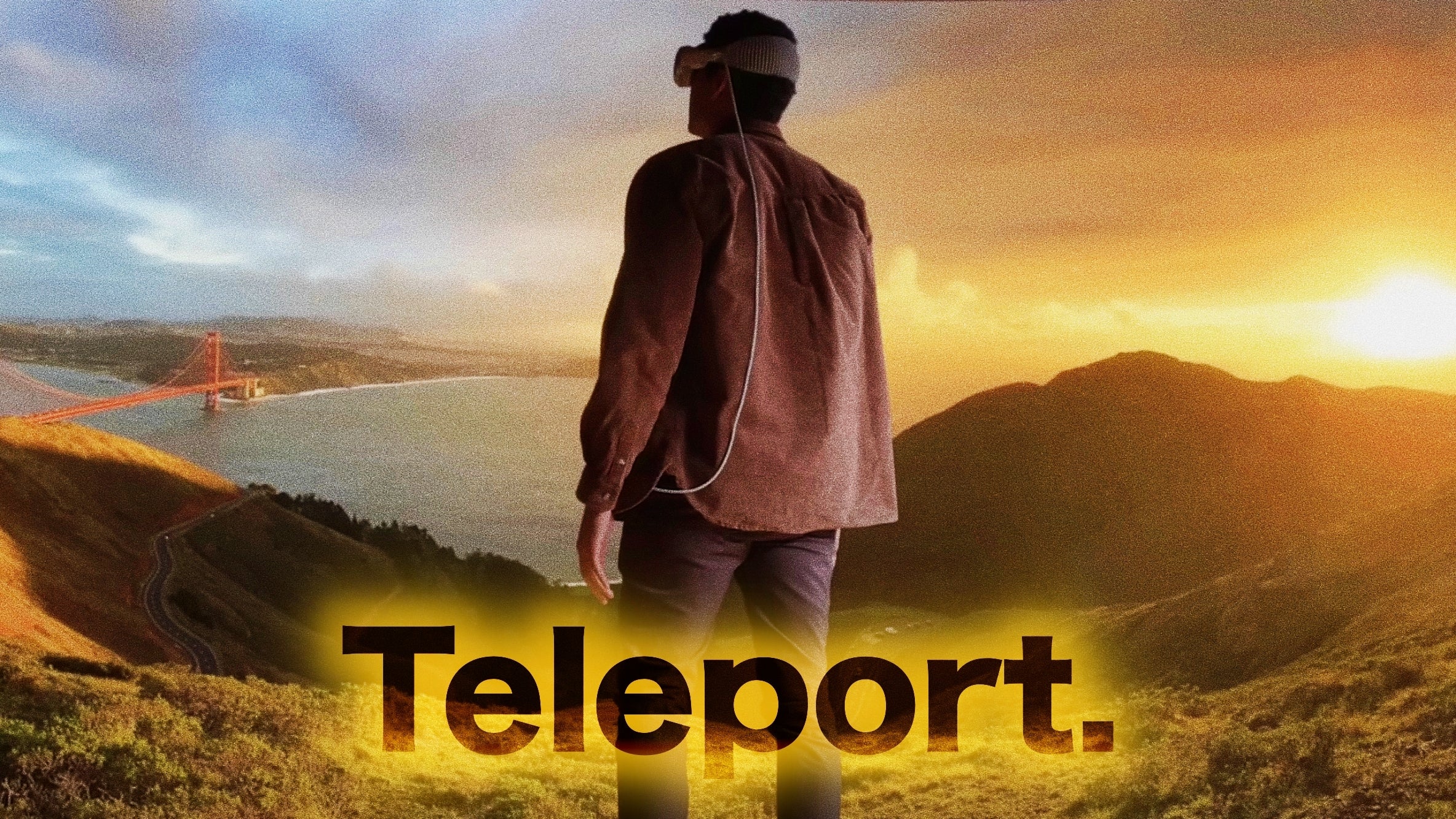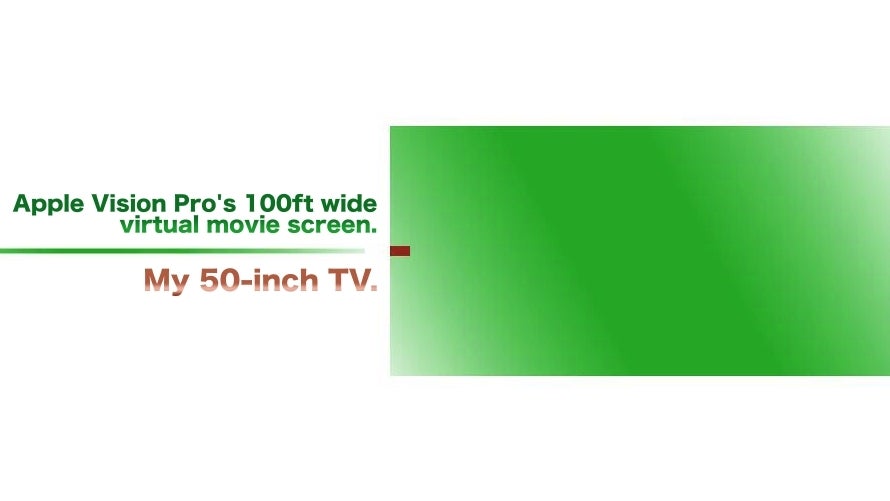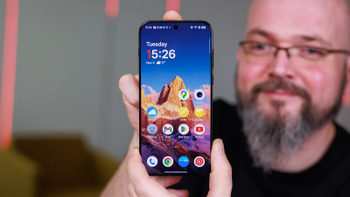Apple Vision Pro: Tim Cook is right; $3,500 - not a high price to pay for the closest thing to magic
This article may contain personal views and opinion from the author.

“I like my iPhone and iPad Pro but sorry, Apple. Hell no for that price.” This is what the overwhelming majority of people think about the price of Apple’s brand new Vision Pro headset, and honestly… I don’t blame them. But...
For example, speaking of other AR/VR headsets, unlike the plastic competition, the Apple Vision Pro is carved out of a single piece of aluminium, and glass which contributes to a super premium look and feel. At 4K+ resolution per eye, the Mini OLED displays (arguably the most important feature of the headset) are industry-leading. In fact, they were custom made by Sony, meaning you can’t and likely won’t find them in any other headset anytime soon (the reported price is over 10% of the cost of the headset).
- Apple Vision Pro comes with a full-blown Apple M2 chip, the same one in the new $1,300 MacBook Air; there’s a second, brand new chip called R1, making sure there’s virtually no latency when interacting with virtual content, which seems to assure Apple Vision Pro is in a league of its own in that aspect (current consumer-grade headsets are prone to latency)
- Multiple camera sensors on the inside and outside make sure you are always aware of your surroundings; in combination with infrared sensors, 3D cameras let you record actual 3D videos in 8K resolution, which (for a lack of a better word) is simply insane
- Oh, and there’s a whole third display on the outside, which makes sure other people can see “your eyes” and interact with you even when you’re wearing the headset (other AR/VR headsets can’t do that), which makes Apple Vision Pro totally unique in that regard
- “State-of-the-art” speakers, premium headbands, expert software, and of course, the cost of manufacturing a device from the future make it clear Apple was never going to sell you a Vision Pro at the price of an iPhone today
When discussing the price of the Vision Pro, it’s also very important to take into account that (according to the reliable Ross Young), certain parts of Apple’s headset have very low yields, meaning they are quite difficult to mass produce without (actively) losing money and resources on that production line. Ross Young says “both the backplane from TSMC and the frontplane from Sony have low yields. That is why it is so costly. Will certainly get less costly over time.”
Regardless, Apple never was and never will be a company that sells hardware at a loss in order to win you over. For better or worse, Apple isn’t like Meta and Google. Especially when we're talking about a device from the future, which Apple Vision Pro (clearly) is. But let's dig a little deeper...
Apple knows there are enough people who can (and will) pay $3,500 to buy an Apple Vision Pro once they see what it can do; the headset's sky-high price challenges Americans to show exactly how much they love their home-bred Apple (products)

Apple Vision Pro is expensive? What about a $3,000 watch?
But how about (using the same logic many people on social media like to use), I make some practical arguments against the general belief that Apple’s first AR/VR headset is “unreasonably expensive”...
Of course, Apple probably would’ve launched Apple Vision Pro worldwide if it could. Although I have a theory that one of the reasons that’s not the case is because the Apple Vision Pro would (certainly) be even more expensive abroad. Based on the price difference between Apple products in the US and Europe, the Vision Pro would be some 20-30% more expensive in the old continent, or at least €4,000 in Europe.
Look... I know I'm oversimplifying this discussion, but I also have a feeling US consumers would be way more willing to spend big on a new, unfamiliar Apple product than those in many European or Asian countries because they are so used to spending big(ger) in general. I believe Ben Sin who lives between Hong Kong and the US makes an interesting point:
As usual, people are foaming at the mouth at prices of bleeding edge tech and being dismissive. Is the Vision Pro worth the price? It depends on the person? I have friends in HK who carry $4,000 Chanel purses. I know dudes who drop $5,000 on a Vegas weekend. You know what’s actually overpriced? America. The money you pay for Uber and eating. Yesterday, in San Jose, I spent $80 on two Uber rides and two Lime scooter rides. THAT’S overpriced.
Again, I know that makes things almost “too simple” but I’m trying to make two important points:
- Yes, it is silly to compare the price of something that doesn’t quite have direct competition (more on that below) to something else entirely
- How ridiculous the Apple Vision Pro’s price is will depend on your bank account, but also on how willing you are to splurge on things you don’t really need - for example, I’m not a splurger, which is another way of saying I'm cheap (and yes, splurger is a word now because it sounds better than cheap)
Considering it can “teleport” you and put a cinema size screen in your backpack, Apple Vision Pro’s price seems reasonable enough - Vision Pro isn't more expensive than a MacBook Pro; it's far more innovative than a $2,000 folding phone

In a way, thanks to its ability to take you to a sports game with a courtside view and 3D renderings of the entire space, Vision Pro will basically be able to… teleport you. And that's like a fraction of the magical things Apple's headset promises to enable. What’s the price of teleportation?
And what about Apple's own MacBook Pro? A 16-inch MacBook Pro model with 32GB RAM and 1TB of storage goes for exactly the same $3,500. The last time I checked the MacBook was just another laptop, while in the case of the Apple Vision Pro we’re talking about the most advanced AR/VR headset available to consumers. In fact, Apple says it’s “the most advanced personal consumer electronics product ever”. Oh, and it has an M2 chip inside, which is also what makes it a proper "Spatial computer", accordion to Apple.
Fun story (really not that fun but whatever)... I tried Googling “100 ft cinema size screen price”, and Google didn’t show any shopping options. You can give it a try for yourself. I suppose that’s how difficult it is to buy a cinema screen even if you had a billion dollars - or whatever the price of this thing is. Meanwhile, Apple Vision Pro would put a 100 ft wide screen in your backpack.
You think Apple Vision Pro is too expensive? Perhaps it simply isn’t for you (and me); let's live in the present and wait for the cheaper Apple Vision headset, while others live in the future

And what's the price of a cinema-size screen? I literally can't tell you. And I Googled it.
Finally, let’s take a second and remember... Apple isn’t making anyone buy anything.
I know… It might seem like a childish argument, but it really is that simple. And in case you happen to be wondering, that’s coming from someone who has no plans to pay $3,500 for the Apple Vision Pro either. But is that because the headset is too expensive, or is it because I’m not the target audience? Both could be true. I suppose if I really wanted/needed an Apple Vision Pro, I’d buy one. Do I want an Apple Vision Pro? Well… That’s a silly question. But do I need it? Now, that’s a fair one. And no, I don’t. No one does.
The first-gen Apple Vision Pro wasn’t made for you and me. Do I wish it was $500? Totally. But that’s impossible when we’re talking about a next-level device so difficult and expensive to make. The Vision Pro is made for early adopters who have $3,500 laying around. Apple made a clear choice - make a cheaper headset that does less, or really go for it, and blow people's minds with next-level features but also... next-level price. Apple simply had to establish itself as the clear leader in the AR/VR space. Mission achieved.
While we’re at it, another position I maintain is that Tim Cook & Co can literally ask whatever price they want for a device like Apple Vision Pro because this one doesn’t have direct competition. Even though there are AR/VR headsets with similar features, they’ll hardly be able to do them on a similar level - whether we’re talking hardware or software. I recommend checking out my other Apple Vision Pro story where I go through first impressions from people who’ve tried the the Apple Vision Pro. You’ll see why this thing is in a league of its own.
The price outrage around the Vision Pro would’ve been the same had the headset been priced $1,000 lower or $1,000 higher. Why? Because the most popular VR headset on the market currently costs $350 (Meta Quest 2). With a price gap that large, and once you get past a certain price point, $1,000 less/more really makes little difference to how a product like Apple Vision Pro is perceived. It’s going to be “very expensive” no matter what. Still, more people would be able to afford it if it was cheaper - that's for sure.
- In the end, Apple isn’t the kind of company that will introduce a cheap, underbaked first-gen product; it seems people forget they are dealing with the Apple that sells $1,000 aluminium display stands
- Apple also won’t lose money on a product and try to undercut the competition like Meta and Google do, because Apple is a hardware company first - it’s how it makes the vast majority of its revenue
- And last but not least... Just watch! People will be buying the Apple Vision Pro (I had to finish with a bro argument)
Follow us on Google News










![A new Android bug is making it impossible to install new apps. Are you affected? [UPDATE]](https://m-cdn.phonearena.com/images/article/176703-wide-two_350/A-new-Android-bug-is-making-it-impossible-to-install-new-apps.-Are-you-affected-UPDATE.webp)

Things that are NOT allowed:
To help keep our community safe and free from spam, we apply temporary limits to newly created accounts: